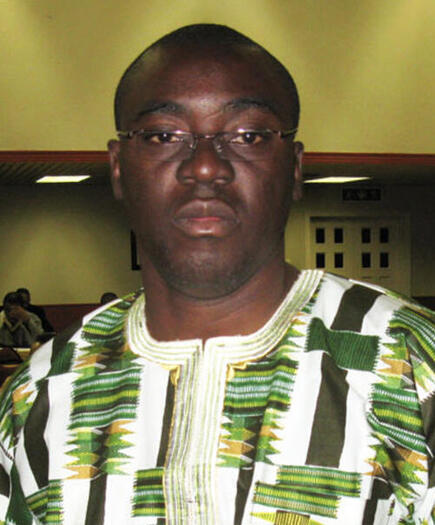Interdisciplinary inquiry highlights African voices


Omobalaji Olarinmoye, a scholar of politics, international development, religious studies, and peacebuilding, recently assumed the position of Librarian of African Studies at the Sterling Memorial Library. In an interview with the Office of International Affairs, Olarinmoye shared insights about his academic journey, resources for Yale students seeking to engage in African studies scholarship, and the importance of interdisciplinary inquiry about Africa that highlights African voices.
Olarinmoye brings his varied academic and research background to the new role. While earning a PhD in comparative politics, Olarinmoye explored various research methods including archival and historical analysis, research relating to visual sources, and intensive fieldwork across a range of social science and humanistic disciplines, in both French and English. Completing his undergraduate, graduate, and doctoral education across four continents, Olarinmoye quickly became aware of how capacity building and interdisciplinary research were key to “seeing the big picture” and how comparative approaches could enrich social scientific understandings.
In his discussions with students, Olarinmoye seeks to extend this interdisciplinary focus and expansive use of different research modalities. He recounted how the students he has worked with have written papers that delve into topics such as comparative studies of incarceration in South Africa and the United States, German foreign policy in southern Africa, and World Bank-led interventions into African food systems. To respond to these students’ inquiries effectively, Olarinmoye collaborated with other librarians, including the librarians for African American Studies, Literature, and History.
In his time at Yale, Olarinmoye has engaged in several initiatives to augment student knowledge about library resources, such as presenting to undergraduate courses and graduate students at the MacMillan Center, speaking at workshops, and sharing resources with student organizations, such as a workshop for the Ethiopian Student Association co-led with librarians from the Beinecke Library. He hopes that students take advantage of the multitude of resources available in the African Studies Collection and is excited for upcoming developments this year.
